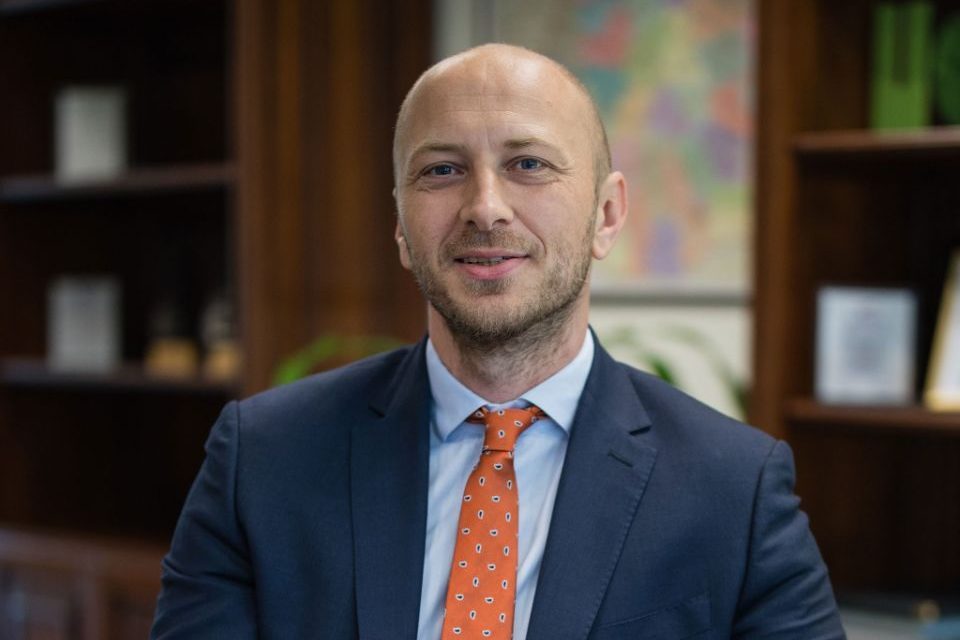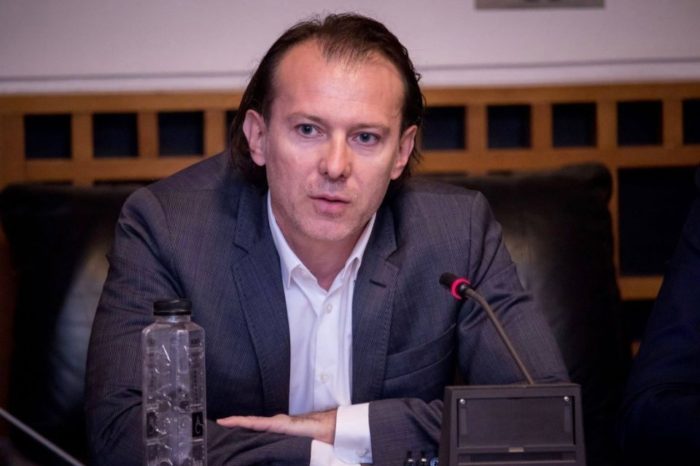Ivan Vrhel, CEO Citibank Romania: “People thrive when they are in an environment where they feel trusted and valued”

“Despite the challenges of this past year, what I have seen within our teams at Citi Romania was a deeper sense of connection, of opening up and recognizing our own vulnerabilities and those of other people. (…) People thrive when they are in an environment where they feel trusted and valued, so we made it clear that we were in this together and that we would get through it as a team,” Ivan Vrhel, CEO and Commercial Bank Head, Citi Bank Romania told The Diplomat-Bucharest.
“It’s really been an opportunity for leaders to show that they are there for their people in a more meaningful and personal way, and I think this has laid s strong foundation of trust for whatever comes next in the coming year.”
What leadership skills do you find most useful in the current changing work environment?
This environment is nothing like we have experienced before and it may be that for the first time, it is a situation that people, whole sectors and countries perceive and experience differently. Unlike crisis situations we have seen before, where people generally had consensus on facts, we are now seeing people often disagreeing on how to interpret data and how to react. In a context like this, I think it is important for a leader to know how to listen carefully to the different perspectives of teams, clients, and experts. I think empathy and inclusiveness help us make the right decisions. My approach so far has been that of a conservative optimism – staying grounded, but at the same always looking for the opportunity for positive transformation in every downturn. And motivating other to do the same.
Which are the empowering mindsets for building the sense of meaning & purpose, both for employers and employees, to keep each other engaged in reaching the business objectives in 2020 and in the next year?
Despite the challenges of this past year, what I have seen within our teams at Citi Romania was a deeper sense of connection, of opening up and recognizing our own vulnerabilities and those of other people. With little children popping up in video calls, bankers executing key deals from their kitchen tables and the whole fusion of life and work, I’ve personally seen people building relationships in an even more transparent and authentic way, in spite of the physical separation. People thrive when they are in an environment where they feel trusted and valued, so we made it clear that we were in this together and that we would get through it as a team. It’s really been an opportunity for leaders to show that they are there for their people in a more meaningful and personal way, and I think this has laid s strong foundation of trust for whatever comes next in the coming year.
What should be a CEO’s and leader’s power message on business resilience conveyed to peers, partners, and employees for 2021, in order to enhance the trust and engagement?
First of all, let us think about the extent of the external disruption – whole companies and sectors moving to work from home, the degree of unpredictability, the pace of digital adoption in so many sectors, the financial constraints. Given the dimension and the velocity of this shock, I think generally businesses have actually performed better than anyone could have imagined. On the positive side, this crisis has actually happened at a moment when we had the tools and technology available to be able to ensure the continuity of businesses in the way that we did. To keep a healthy dose of optimism, let’s look at the silver linings of this pandemic: approaching more creatively the way we live and work, getting to spend more time with our families, becoming more aware of other potential threats to our environment and more committed to preventing them from happening in the future.
How can a CEO and leader of an organization capitalize on the current challenges to enhance ad promote the company’s competition advantages currently?
The value of connectivity has increased during the pandemic and we have rapidly seen how work from home starts catalysing next generation software focused on productivity & collaboration. Lockdowns have also boosted sectors like online healthcare or ‘at home’ commerce. The population of e-commerce users has expanded from younger consumers to the middle-aged, and the shift from offline to online shopping is happening faster than was widely expected. My sense is that the upper limit on the rate of e-commerce adoption has been raised, opening up new possibilities for the online channel. The upcoming roll out of 5G will drive tele robotics and augmented and virtual reality, leading to increased automation globally. Improved virtual and telepresence could also shift the development path for emerging markets, away from a manufacturing-led growth model (like China) more to a service-led growth model (like India). Those of us who understand all these accelerating trends and have the courage to think out of the box and make the necessary changes will likely ensure competitiveness in the new world.
Which are the current concerns of a CEO / leader in 2020? Which are the hopes for 2021?
For me, the biggest concern continues to be the health situation as such and how to ensure the wellbeing of our people and of the wider community. Everybody goes through a level of uncertainty and mental pressure like never before and we, as leaders, should make all efforts to support our employees as much as we can. In this context, we, at Citi, believe that, when the external environment allows, the return back to office should happen slow and gradual, with deep consideration of employees’ personal circumstances.
From a country perspective, this crisis has shown again Romania’s vulnerabilities in different sectors, such as healthcare system, education continuity especially in vulnerable communities, investments in agribusiness production to support domestic demand. As we manage these challenges, it is not too early to start thinking about how to prepare for similar challenges in the future, such as those driven by pollution and climate change. My hope is that there will be some lessons learned, which will be the start of a more responsible, more inclusive, and greener country.
What kind of innovative measures and inclusive leadership initiatives have been applied within your organization this year, to better cope with the current context and bring the business forward in 2021?
With 80% of our staff working from home during all this time, we were challenged to accelerate our digital transformations and to deepen our partnership with clients in new and creative ways. At Citi, these included additional investment in digital capabilities supporting our institutional clients, including on-boarding and technology enhancements designed to improve the client experience, documentation flexibility, webinars and extensive individual client calls, research and analysis on the pandemic and subsequent market implications for their respective sectors. During these uncertain times, Citi remains well positioned from a capital and liquidity perspective. We have a strong balance sheet and will continue to actively support our clients through this challenging period.
In terms of inclusive leadership, studies show that women have been most impacted by the pandemic, with majority of caregiving and household responsibilities on their shoulders, on top of work. This is a very difficult environment for women to thrive, so we have further built our internal Citi Women’s Network platform, which provides our employees a valuable forum for sharing experiences, supporting wellbeing, as well as learning & development, thus ultimately helping our company become even more diverse and inclusive.













